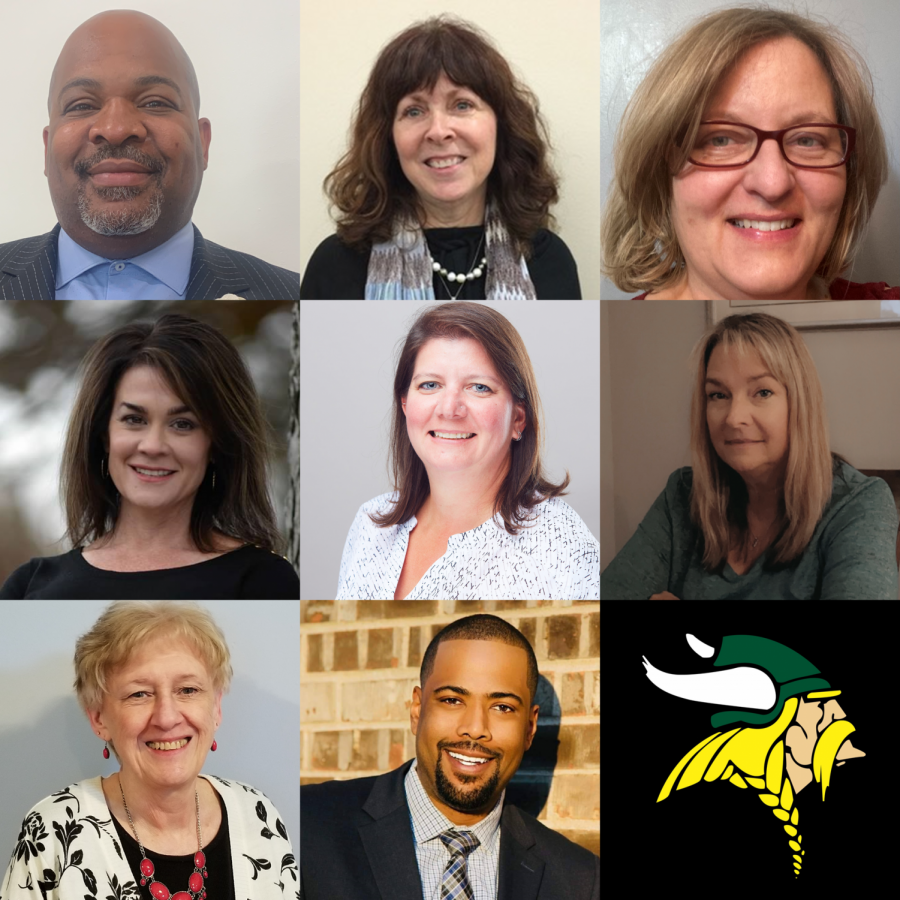Communication with the Community – 2021 District 211 Board of Education Election Candidate Questionnaire
March 18, 2021
The Viking Logue sent out a questionnaire to all nine candidates in the District 211 Board of Education race. See all of the candidates’ responses to one of the questions below. See here for The Logue‘s full coverage of the April 6 election, including the candidates’ responses to other topics on the questionnaire.
Recent months have shown increased community interest in Board proceedings. How should the district communicate with the community? How should the community be able to communicate with the district?
Curtis Bradley: Constituents impacted by decisions of the Board should always have a voice and I see the increased community interest in Board proceedings as a positive development I hope continues. I would like to see the School Board more accessible by building a positive relationship with our community, keeping both formal and informal lines of communication open so that important concerns can be discussed and dealt with. Our District has successfully communicated information as it became available about the pandemic.
Information on Social Services was shared by email, tweets, Facebook, phone calls and on district websites. This information included resources for food, counseling, and suggestions for dealing with the pandemic available in our community.
Denise Wilson: The communication between the administration and the parents/students has been poor. There has been directional changes between remote, hybrid and in-person learning many times without any waring or providing justification. The Board should be included in making all directional education changes and then changes need to be communicated to the parents in a timely manner with detailed reasons.
Robi Vollkommer: I think there should be a forum where the BOE could communicate with the community in a setting where a back-n-forth dialogue could ensue. Something like a “Coffee with the BOE”. Obviously, this would only occur while maintaining the Open Meetings Act guidelines.
Kristen Steel: Board meetings are a bunch of blank stares. This is by design. Instead, there needs to be a dialogue. The BoE has the power to change the meeting to be more community friendly. If I am on the board, I will do that. Unfortunately, the old white guy running the meetings follows recommendations from the Illinois Association of School Boards (IASB) which discourages dialogue. This drives a wedge between the community and the board. It is replaced with a reliance on the administration and superintendent. This MUST change. Your voice is a direct reflection of the quality of services provided. WE must have an open discussion to identify our needs at each of the schools. The fact that you’re involved in this election indicates two things: First, you’re interested in change. Second, you’re learning about the potential for that change.
Jessica Hinkle: I believe the main thing that needs to be improved on is better visibility and understanding of the current communication process (i.e. knowing where to find the BOE meeting agenda, minutes and videos and knowing the BOE emails).
To take it a step further, I would entertain the the idea of the board having a social media account managed by the board secretary.
Roxanne Wittkamp: I believe the primary goal of a school board member is to advocate and serve students. All stakeholders, parents, district personnel, and students must be partners in this endeavor if we are to be successful.
I believe that a school board member must be responsive, receptive, and encourage open dialogue with parents, staff, students, and the community. A Board member must be accessible and willing to collaborate with all stakeholders. A school board member must build public understanding, support, and participation.
A school board member must understand the district’s fiscal responsibility and balance the financials, so they do not jeopardize student learning.
Anna Klimkowicz: I strongly encourage community members to come to the board meetings, and address the board, for this is an opportunity for all board members to hear the statement. The board generally does not address the statement at the time and directs the superintendent to respond. This allows for a review of the statement or concern and the opportunity to research, evaluate or explore the statement and provide the speaker with the requested information.
An individual can always communicate with their school administration, district administration, or with the board through email or a call. However, if specific information is requested then it would be best to request a Freedom of Information Act (FOIA) in writing, directed to the superintendent. The board president of District 211 serves as the contact point for the board; however, communication is copied to the entire board.
There is a Code of Conduct for Members of the School Board that provides guidance so that board members continue to represent the public in education.
Tim Mc Gowan: While addressing the board during public comment is one way for the board to hear about public concerns, it does not offer the opportunity for dialogue. There should be more working groups and committees within the district that are available for the wider community to join and contribute to the work of improving the district. As board members, I plan to host office hours to hear from constituents about the challenges they are facing and how the district can support them. This will begin on Zoom, of course, but I hope to eventually host office hours at local libraries.



